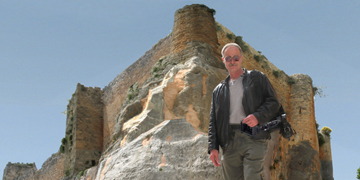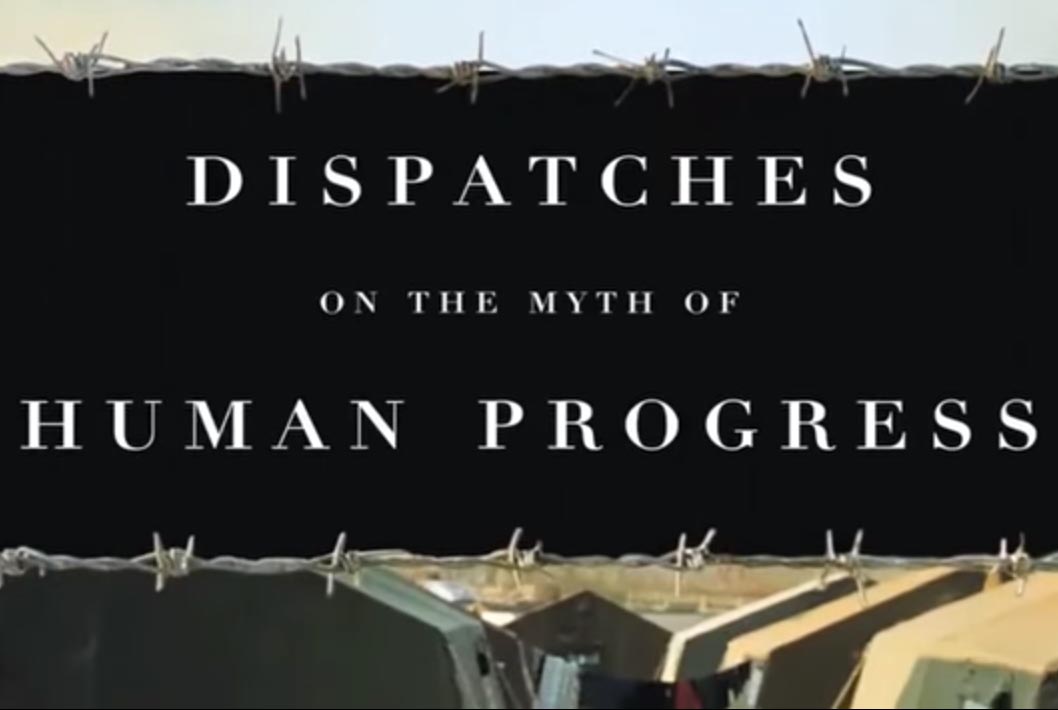Demonstration of free media
In 2011, with basic skills, I assembled this video to promote a speaking appearance by Chris Hedges.
KPFK announced the event featuring Chris Hedges in the 8:59am and 5:59 drive times.
I thought: People will hear the announcement -- do they drive with pen and paper in hand?
This project required digital imagery, video animation, audio editing, and Google-Search meta-tagging.
(In the past, I had worked with 35mm photography and cinema. After re-training with digital photography, video, and web-coding, I had worked in Syria for more than a year. Contract work waited for me in Damascus, yet violence in the streets made return to Syria uncertain. I had time to experiment as I waited for the new contract and air ticket. )
I had never combined imagery with video and audio and YouTube Search. The internet provided images and audio, PhotoShop prepared the images, Audition edited the audio, I took background imagery from a DVD, I then animated the images with Final Cut Pro. I guessed listeners could remember Chris Hedges, Pasadena, KPFK. I titled and meta-taged the video for the keywords, Chris Hedges, Pasadena, KPFK.
In the 36 hours before the event, the video received 3,000 views. And the event succeeded. Chris Hedges filled the church. Sold out. The ticket sales funded KPFK.
This assembly of images, audio, and meta-tags took two hours. Now, after years of experience with these skills, I could teach a volunteer to do this work in an hour. This an example of how free technology can increase income from events.
In this way, and other techniques, KPFK volunteers and interns can heighten the value of announcements. KPFK offers intern opportunities with college credit. Beyond college credit, these skills make money in the real world. And perhaps KPFK can present community education classes in media technology.
Media skills will provide more information to listeners in Los Angeles.
Consider this: Issues of the world and the nation threaten the Los Angeles community -- KPFK commentators provide the background to issues, before the issues become catastrophes. Reports on climate destruction are an example of this. KPFK must continue -- and to do that, to serve the listeners, the programs and personalities of KPFK must increase the volume of information offered to greater numbers of listeners. This involves alternatives to radio alone -- audio-production for hand-held devices, internet print publishing, and video production. Expanding these alternatives requires the work of more groups and individuals and more funding to provide the equipment to the volunteers.
INSTRUCTOR OF WRITING, LITERATURE, AND DIGITAL PUBLISHING
KPFKRobertPayne@gmail.com
website: VideoAdventures.info (in process -- always)
Videos: YouTube / VideoAdventures

